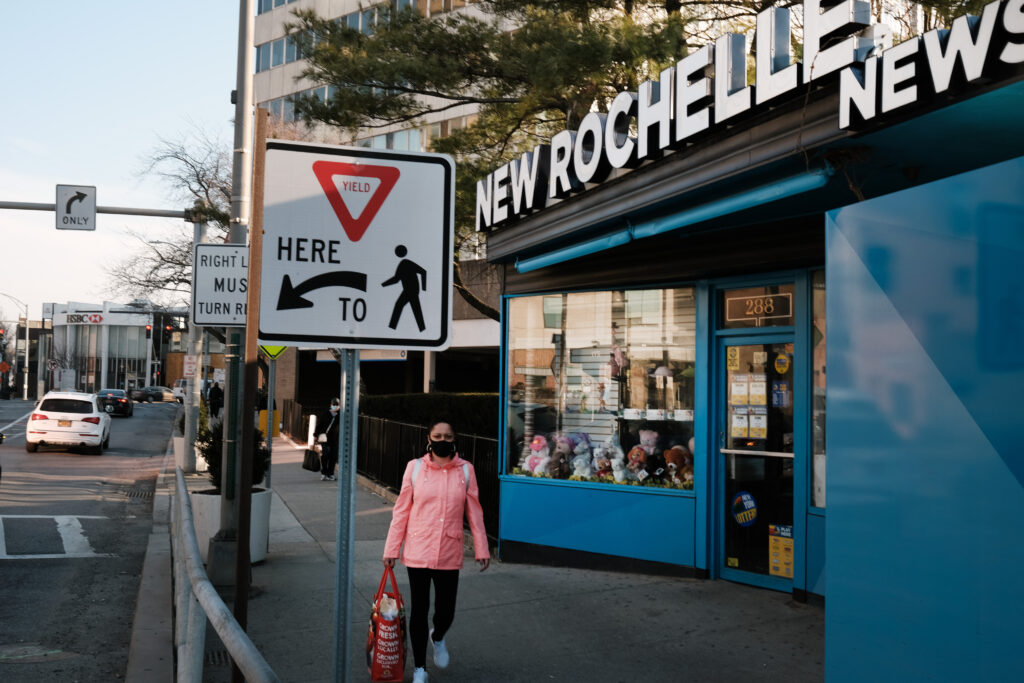The Suburb That Shows Why Socialist Mamdani Is Wrong About Rents
By letting developers build, New Rochelle sees housing costs fall.

According to the Democratic Socialist who stands to become the next mayor of New York City, only the heavy hand of government can make the city’s housing more affordable. The Democratic Party mayoral nominee, Zohran Mamdani, promises to use his office to freeze rents on nearly 1 million apartments — and to build an additional 200,000 public housing apartments, to go along with the 177,000 crumbling such units it already has. Per Mr. Mamdani: “We can’t afford to wait for the private sector to solve this crisis.”
The Queens assembly member needs to do some economic research — starting with the laws of supply and demand — and he could begin with the Gotham suburb of New Rochelle, a city of 85,000 just north of the city at Westchester County. There, according to a startling report in the Wall Street Journal, “New Rochelle’s median rent actually declined 2% from 2020 to 2023, while median rent nationally was surging at a double-digit rate.”
This is the same high-cost metro area as Manhattan — where rents between 2023 and 2024 rose 2.7 percent overall and 5.7 percent for three-bedroom units. The New Rochelle difference: letting private housing developers build. The city currently has 6,500 already-approved new housing units to be built. By contrast, New York City — 100 times larger than New Rochelle — added only 38,000 new units for all of 2024.
“You can say rent control or rent freeze and I understand it,” New Rochelle’s mayor, Yadira Ramos-Herbert, told the Journal. “But the success of our development has allowed us to be able to invest and explore other opportunities around affordability.”

New Rochelle’s secret does not involve subsidies or public housing projects. Instead, it guarantees that new housing development proposals will learn if they get the go-ahead within just 90 days. The chief executive of the development firm RXR, Scott Rechler, said of city officials: “They set the playbook, then private developers could come and play.”
The firm, per the Journal, has invested more than $1 billion in New Rochelle, made famous in E.L. Doctorow’s novel “Ragtime” and, since it was the home of famed comedy writer and producer Carl Reiner, the reported inspiration for TV’s classic “The Dick Van Dyke Show.”
RXR’s investments include a 28-story luxury tower, proving that new construction at any price level can help make all housing in a municipality more affordable. Again, supply and demand — along with a willingness to permit zoning that allows for density. More housing on the same square footage of land leads to more supply.
New Rochelle’s housing success offers additional, subtle lessons. The city understands itself to be competing with other municipalities for residents who will sustain its tax base and pay for its schools and other services. Developers and potential residents have a choice about where to build and live; New Rochelle has created magnets for them.
By adopting a pro-development policy, too, New Rochelle has gained privately provided amenities — like “a 10,000-square-foot theater and holds competitions for local artists to live in one of its new buildings rent-free for a year,” per the Journal. That such amenities will be located in the same city authorizing new development contrasts with the situation in New York City — where “not in my backyard” opposition frequently blocks new projects seen by their residents as bringing new costs like noise and traffic without benefits for their own neighborhood. New tax revenue goes into the city’s general fund and city council districts must bid for capital project funds.
It suggests that New York City might well be better off were it to be divided again into five independent boroughs — which could compete with each other by offering high-quality services and an attractive business climate — rather than a politics based on redistribution, as currently characterizes the city’s housing market, in which 960,000 units are price-regulated.
Nor is New Rochelle’s lesson confined to metropolitan New York. It reminds us that housing affordability will never be guaranteed by the bureaucrats at the Washington, D.C.-based Department of Housing and Urban Development. All housing policy is fundamentally local. Zoning and planning boards decide whether two houses or four may be built on an acre of land, or whether attached townhouses will be approved. Until more jurisdictions learn the lesson of New Rochelle, young renters and future homeowners will continue to struggle.

